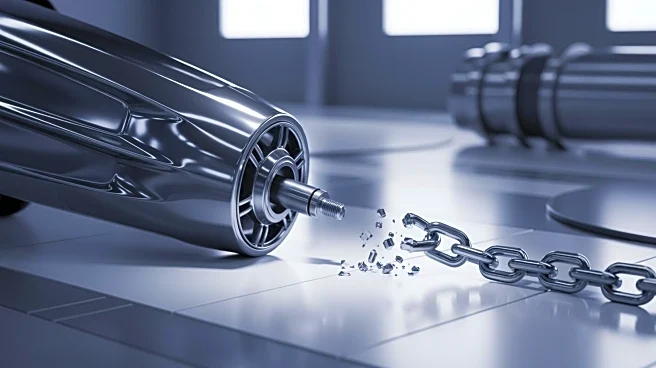What's Happening?
Stellantis, a major carmaker, has terminated its supply agreement with Australia's Alliance Nickel for battery-grade nickel and cobalt from the NiWest project. The decision, effective December 3, was made
due to missed milestone deadlines by Alliance Nickel. This development comes as the European Union faces calls for flexibility on its 2035 deadline to halt the sale of combustion engine cars. EU Industry Commissioner Stephane Sejourne emphasized the need for safeguards against Chinese car production sites in Europe. Meanwhile, Italian companies like Pirelli and Banco BPM are reporting stable profits and strategic developments, with Pirelli confirming its outlook despite market challenges.
Why It's Important?
The termination of the supply deal by Stellantis highlights the challenges faced by automakers in securing reliable sources of critical materials for electric vehicle production. This move could impact Stellantis' supply chain and production plans, potentially affecting its competitiveness in the rapidly growing electric vehicle market. The broader context of the EU's transition to electric vehicles underscores the importance of securing stable and sustainable supply chains for key materials. Additionally, the EU's stance on Chinese car production sites reflects ongoing concerns about market competition and the strategic positioning of European industries in the global automotive sector.
What's Next?
Stellantis will need to explore alternative sources for battery-grade nickel and cobalt to meet its production needs. This may involve negotiating new supply agreements or investing in domestic or regional mining projects. The EU's discussions on the 2035 combustion engine car ban and Chinese production sites are likely to continue, with potential policy adjustments to address industry concerns. Companies like Pirelli and Banco BPM will continue to navigate market challenges, with Pirelli facing a U.S.-related deadline to resolve governance issues with its Chinese investor. The outcomes of these developments will be closely watched by industry stakeholders and policymakers.








